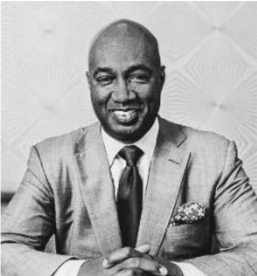“Four-and-a-half billion people are connected to the Internet, and most Americans are connected,” Irving says. “… but one out of three New Yorkers don’t have broadband. So, there are more people in New York City without broadband than there are people in Houston.”

“Seventy percent of teachers give homework that requires broadband,” he added. “And five million students in this great nation of ours go home every night to a home without broadband.”
Irving warns that the inequities will only get worse under the Federal Communications Commission’s (FCC) current policies, which only focus on connecting rural areas.
“How can a nation as rich as ours have these continued divides? And with 5G, we will make the divide worse,” he said.
“Fed policy has limited the ability of states, localities and cities and communities to require providers of 5G to deploy it equitably. It is important that we focus on rural communities, but it is troubling that the FCC is just promoting a $9 billion fund for connecting rural America and hasn’t earmarked any money for low-income, urban Americans,” he added. “Now I’m worried much more about access than affordability.”